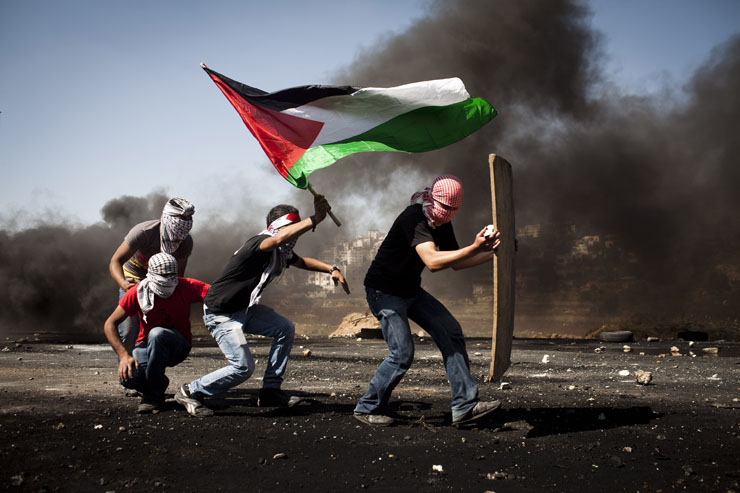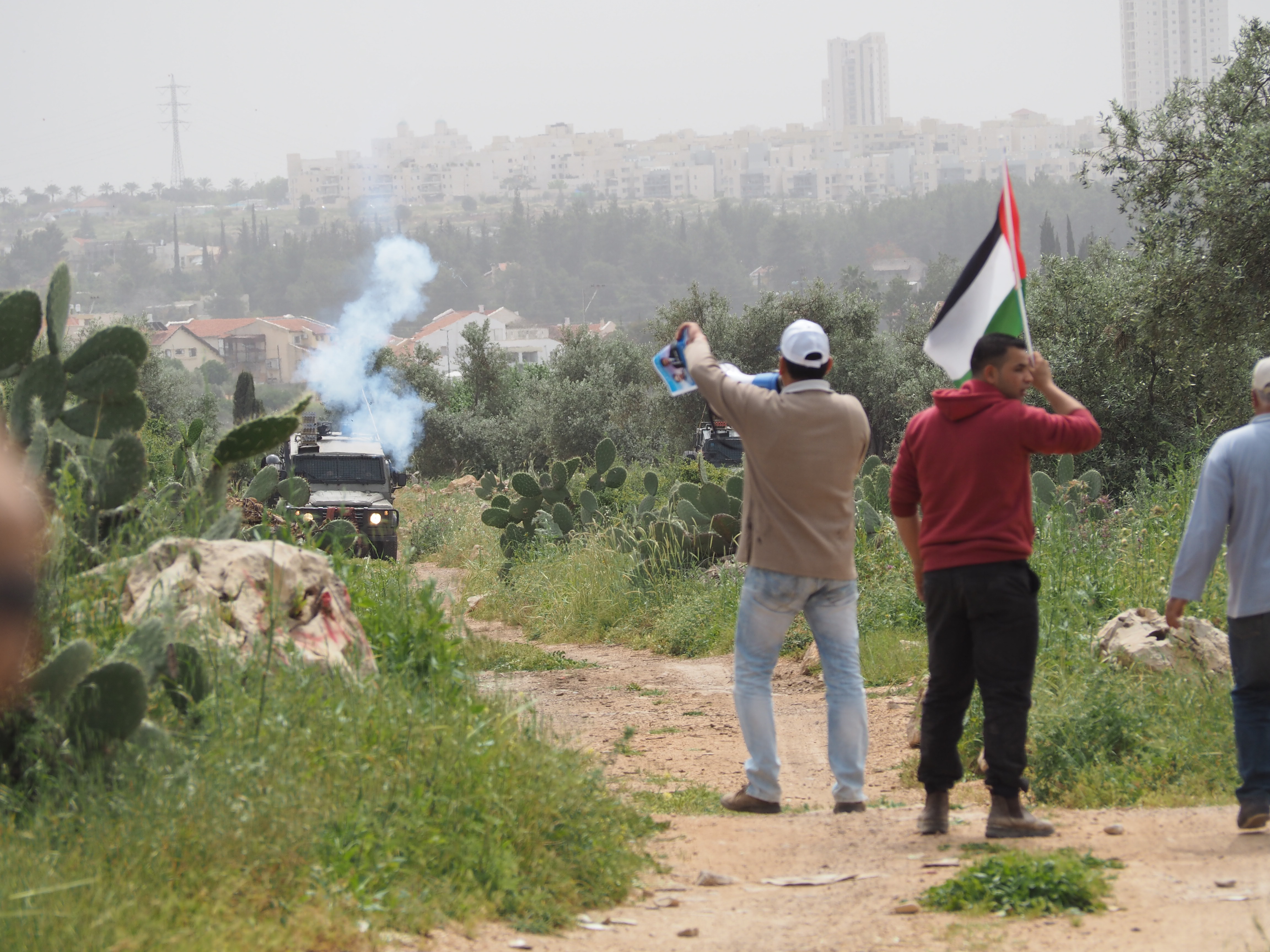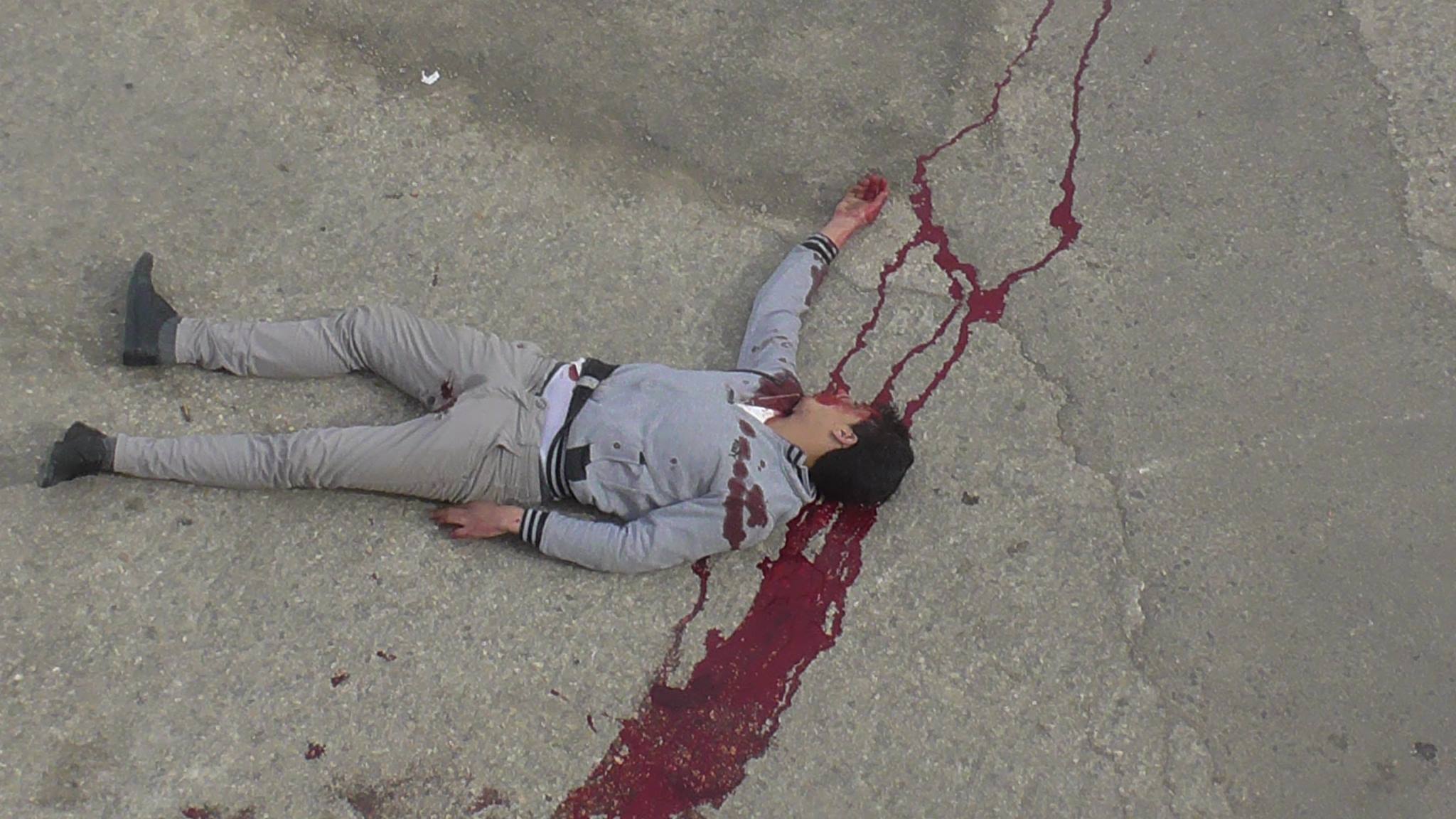Tag: Israeli forces
-
New stun grenades used at Ofer military prison demonstration
26th March 2016 | International Solidarity Movement, al-Khalil team | Ofer, occupied West Bank On 25th March 2016, Israeli forces at Ofer military prison injured 8 Palestinians with various kinds of weapons, and later on attacked the nearby village of Beitunia, injuring even more. A demonstration against the Israeli military occupation and for the freedom…
-
Peaceful Ni’lin demonstrators attacked with deadly tear gas canisters
25th March 2016 | International Solidarity Movement, al-Khalil team | Ni’lin, occupied West Bank On Friday 25th March, Palestinians, Israeli activists and foreign activists alike took part in the weekly demonstration to oppose the apartheid wall that surrounds the town of Ni’lin and has taken much of the villages land. The demonstration which started peacefully was…
-
An evident extrajudicial execution in Hebron
24th March 2016 | International Solidarity Movement, al-Khalil team | Hebron, occupied West Bank On the morning of the 24th of March, around 8:30 am, two Palestinian youths, Ramzi Aziz al-Qasrawi, 21 years old, and Abed al-Fattah Yusri al-Sharif, 21 years old, were shot to death by Israeli forces after an alleged stabbing attempt in the…



